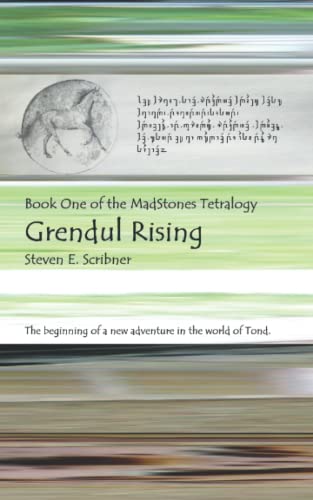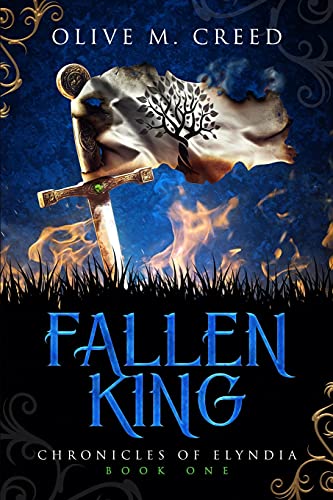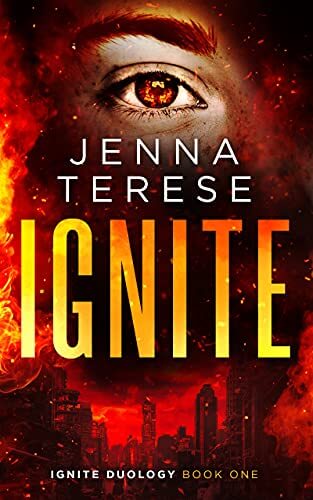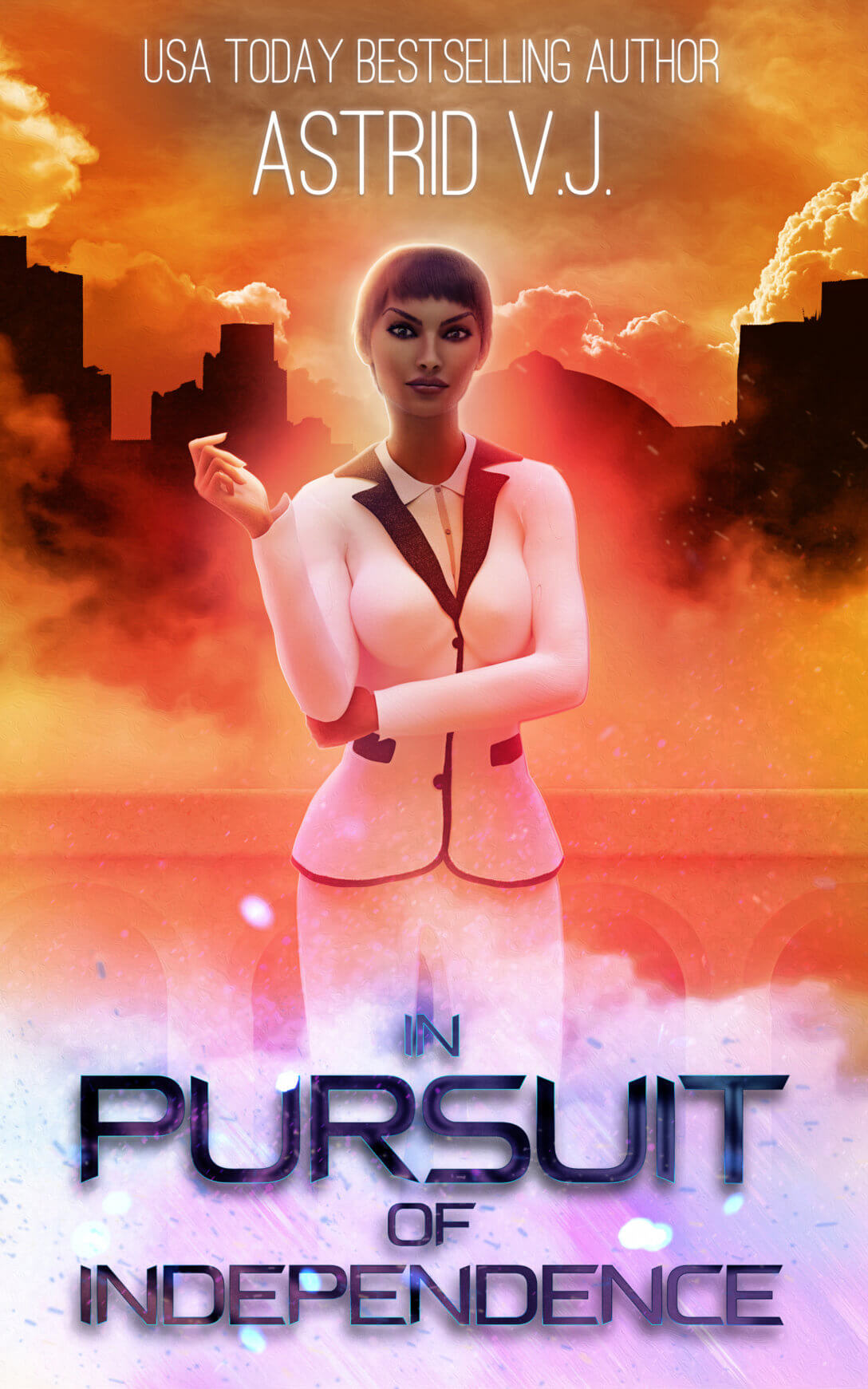Hello all! It’s been a while since I posted something here, but today I have a guest to interview. Steven E. Scribner is the author of the Tond series, and he’s here to answer some questions about his book, Grendul Rising, which is the first of the Madstones Tetralogy, the second series in the world of Tond. Let’s dive right in!
Steven, thanks for being willing to answer these questions for this author spotlight! I’m glad to have you here today. First up, can you tell us what the inspiration for this story was?
Several threads came together.
One: there were a couple of loose ends in my original “Tond” books, which I thought I could put together to write another story.
Two: Current events (and the division in manners of thinking) have gotten so extreme and bizarre that they almost sound like a fantasy story themselves. I wanted to treat them in an allegorical manner and, at the same time, have the characters go on a third path that can restore sanity. (In this book, though, only the madness is presented, and only part of it; the resolves will come later in the tetralogy.) I don’t have the characters “discover” this third path because it’s always been there for them.
Three: Old stories (by me). There were some characters and sub-plots that I had put in the very first versions of my “Tond” books (written when I was in high school, more than forty years ago); I had eventually dropped these ideas as the stories evolved but I thought it would be possible to bring them back into another story. So, the newest “Tond” book contains some of the oldest “Tond” material.
Four: Old stories (not by me). This new series will feature retellings of one Medieval and one Renaissance story, along with a lot of “folklore” that I invented (but based on actual folktales from various places in the world).
That’s awesome! It’s always nice when you can put a message into the book naturally without losing any of the meaning in the message or the story, and retellings of folklore and stories through your own lore is very inventive! Now, let’s look at our next question. If you had to boil the story down to its fundamentals, what is the theme you’re trying to get across to the reader?
Discussions on the nature of evil, and how we know about it. In the original “Tond” series, the villain is pure evil; a vast monolithic force of corruption and destruction in the manner of Tolkien’s Sauron. This time, though, I present a subtler antagonist. In this first book he seems to be nothing more than a petty dictator wannabe who sews discord by means of propaganda and misinformation. That much is obviously “evil”, but some of the characters (who have known him previously) drop hints that his psychology is more complex and his motives may not be purely malevolent. Likewise, the protagonists are not always obviously “good”; one of them resorts to bribery at one point, and under-the-table criminal activity seems ubiquitous in the part of Tond called Kaii. So how do we recognize evil? This point will be discussed more in depth later in the series.
That’s one of those enduring themes that has so many good iterations of it and new angles to explore. I love that you’re looking at both pure evil and also subtler evil that may not be readily apparent and may not purely be motivated by malevolence. As is often said, the worst type of dictator (or villain) is the one convinced he’s doing it for your good! So, did you consciously choose this theme, or did it sort of reveal itself during the process?
It pretty much revealed itself after I had put together the four “threads” I talked about in Answer #1.
Always nice when that happens and you don’t have to sit there and heavily think about what sort of theme would be best illustrated by the story you want to tell! It definitely makes writing the book easier when it all falls together that way! So let’s look at some fun questions now! What is your favorite moment in the novel, and why?
A lot of it deals with serious themes, but there’s a lighter moment in Chapter Two that I like. Nanta Hornblower is charged with playing the Horn on Horn Hill every morning at sunrise. This is taken to be a very serious occupation in Kaii, and it may involve hardship (Nanta has to live in a chilly, smelly little hut atop the Hill and go several miles to get food and water, for example). When one of her friends asks why she does it, she points out the view from the Hill: misty and sunlit mountains and forests, and twinkling lights that are the sunlight glinting off of glass windows in the towns in the woods. She appreciates the beauty of nature and of art. The inspiration for this scene (which goes back to those very early versions of the “Tond” books) was the horn calls and forest music in Mahler’s Second Symphony. (Here’s a link: begin at 19:25 if you want to hear the actual piece! Gustavo Dudamel / SBSOV Mahler: Symphony No. 2 Mov V (1/2) – YouTube)
And, a comical moment also involving Nanta and music: (this is a paraphrase since the original makes no sense out of context). In the midst of a riot: “Put your hands up and step away from the bagpipe!” (The Tondish bagpipe is a Rube Goldberg contraption quite a bit zanier than the familiar European versions.)
That last one sounds like a really funny moment in the scene! So since you’ve noted a lot of the story deals with serious themes, let’s turn our focus back to that discussion. What is the moment you feel best illustrates the theme and why?
Tazzie spoke up, “You said that Grendul’s motivation is a misplaced desire to do good. Creating madness does not seem to be desire to do good.”
S’Enrik emitted what sounded like a grim laugh. “Ah yes, that’s the trouble, isn’t it? It depends what kind of madness.”
Grendul Rising, Scribner
This fragment of conversation states the theme precisely, though at this point the reader doesn’t know what S’Enrik means. Hopefully the reader will be taken on a journey (along with the characters) to answer his question.
I like it. Sometimes, blunt and open is the way to go, especially if you’re doing it at the earlier point before the journey is fully taken so you can unfold the real meaning behind the statement of the theme as you go! So this definitely doesn’t sound like an easy book to write. What was the greatest challenge you faced while writing this, and why?
Organizing all of the plots and sub-plots. The story is fairly complicated, and it has to tie into what happened in the first “Tond” series but still be understandable to those who haven’t read those books. My solution (I think it worked, but so far no one has commented on it) is to make this a Book of Questions. Though the major plotlines reach a conclusion, it’s definitely part one of a series and there are a lot of hints that will only come to fruition in later books. One character seems to have some kind of powers, but has no memories from earlier in his life. Another is on a quest to answer “seven questions”; by the end of the book he says he’s found the answer to one of them but doesn’t say what the other six are. Two characters have been given missions, but we don’t know what either mission really is, who gave the orders, or why. There are a number of other disconnected comments and incidents; this includes the book’s cover: why the moon-horse? It’s an image from some of the “folklore” I made up, it but doesn’t seem particularly relevant at this point. Of course I, as the author, know the answers to these questions, but answering them to the readers’ satisfaction will continue to challenge me. (Kudos to the illustrator, Cassander Garduna, for a great moon-horse.)
Those more complex stories can definitely be tough to work with, especially with all the things you have to tie together and keep track of! It sounds like you came up with an interesting solution to it, though! So what was the easiest part of writing this story?
The several descriptions of the world of Tond (both of nature and of cultural details). These were easy simply because I enjoy imagining and inventing things, and then writing about them.
That’s always one of the fun things about writing fantasy! There’s no real limit to what you can come up with to make your world unique. Along the same lines of favorites as we had earlier with your favorite scenes, who was your favorite character to write?
I have two. 1.) The aforementioned Nanta Hornblower, because she’s associated with music (another one of my interests), enjoys nature, doesn’t take guff from anyone, and (like me) is a bit nerdy and weird. 2.) S’Enrik; at this point he’s a sort-of Gandalf/Obi-Wan character, but he has a long backstory that touches on Tondish philosophy. I hope to flesh that out in the second book of the series.
Sounds like you’ve got a few fun characters to play with, then. Now, I always like to ask about influences, so can you tell us which books you feel had the greatest impact on your writing and why they did?
For the entirety of the two “Tond” series: Obviously, Tolkien’s “The Lord of the Rings” and Herbert’s “Dune” books. Little needs to be said here; most modern fantasy is indebted to them. A more subtle influence is from James Joyce’s “Ulysses” and Jerry Spinelli’s “Stargirl”. These are very different books (one is a short kids’ book; the other is a sprawling tome that’s not even remotely for kids) but the odd similarities are features that I’ve tried to invoke in “Tond”: both show mythic archetypes appearing in everyday life (though in the case of Tond, that “everyday life” is in a made-up realm) and both immerse the reader in a tiny fictive world that stands for the entire universe. (The “tiny world” does not apply to Tond, though it does stand for wider ideas.) And, I might add (though I don’t know if I’ve been able to imitate this), both are veritable fountains of quotables and gorgeous prose.
For this book in particular: I recently started reading N.K. Jemisin’s “Broken Earth Trilogy”, and her manner of telling the story (separate timelines that come together as the book progresses) helped me solve some problems with the narratives in this new “Tond” book. As I’m planning it now, the first three books of The MadStones Tetralogy will all be told in this manner.
Great influences to have! I haven’t read all of them, but I’ve heard they’re all very good! On the subject of books, let’s end off by talking about some comparisons for readers who might be interested in reading your book. What books would you say Grendul Rising is most like?
Hard to say. It’s along the lines of a lot of fantasy with its invented world, cultures, and languages. Maybe the “Dune” books are closest because of the mix of fantasy and sci-fi (though, unlike the “Dune” books, the fantasy element is the stronger of the two) and the exploration of history, politics, and religion (though again, the takes on these topics are very different from Herbert’s). Mostly, I hope the readers will enjoy this book and make their own comparisons.
I think that’s what we all hope! Well, thank you again for being a guest on the blog, and readers, I hope you’ve enjoyed what you’ve read today from Steven. If you did, be sure to check out his Tond series and Grendul Rising! That’s it for today, everyone. See you next time!




